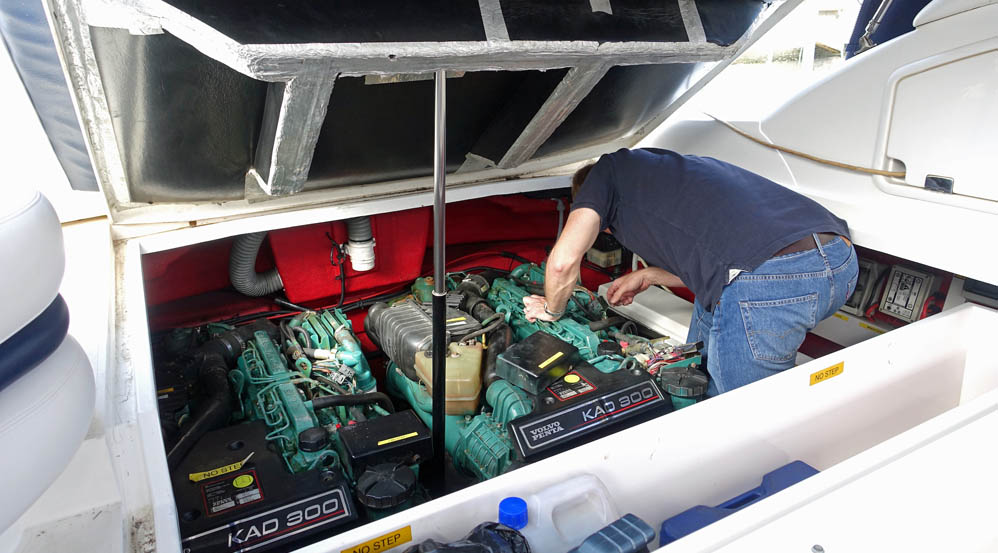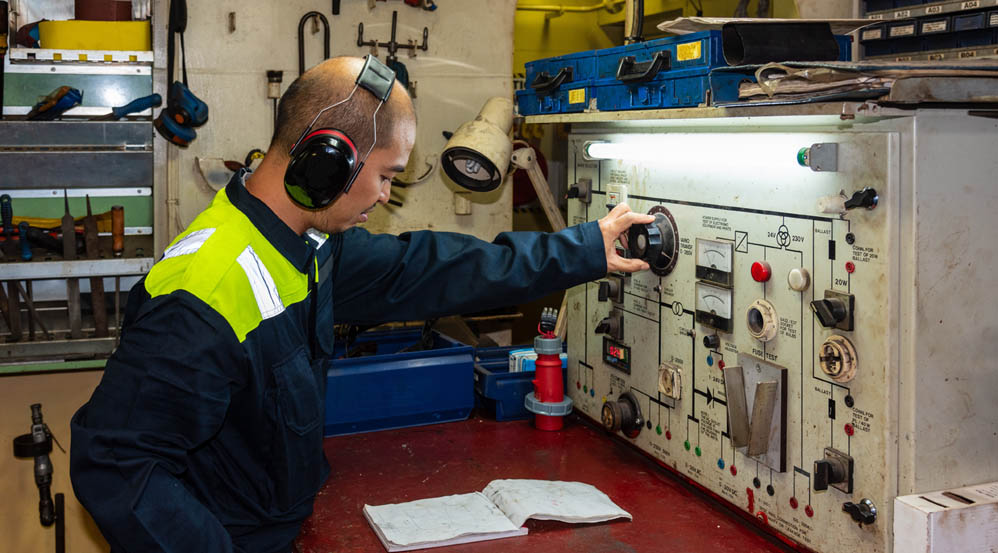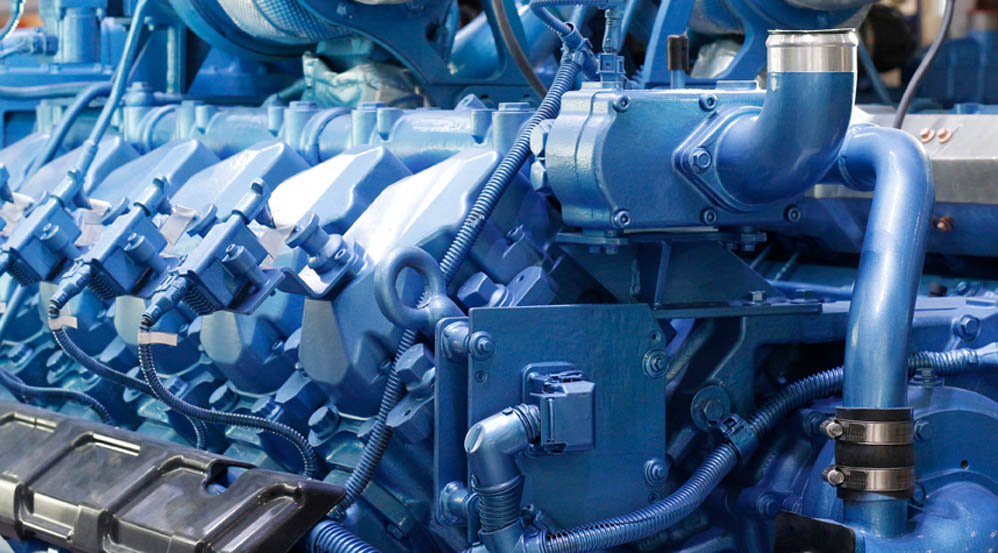Marine engines are the heart of any vessel, providing the power to traverse waters, whether it’s the vast expanse of the ocean or the calm serenity of a freshwater lake. While all marine engines serve the same fundamental purpose, their design and maintenance requirements can differ significantly depending on the environment they operate in. Here, we’ll dive into the key distinctions between marine engines suited for ocean use versus those optimized for freshwater.
Continue readingEssential Tips for Working on Marine Engines
Marine engines are the beating hearts of any vessel, ensuring smooth and reliable operation on the water. Whether you’re a seasoned marine mechanic or a boating enthusiast looking to take on some maintenance yourself, understanding the nuances of marine engines is crucial. Here’s a comprehensive guide to the key things you need to know when working on marine engines.
Continue readingMaintaining Electrical Components of a Ship: A Comprehensive Guide
The electrical systems on a ship are crucial for its operation, safety, and comfort. From navigation and communication equipment to lighting and propulsion systems, maintaining these components is essential for ensuring a vessel operates efficiently and reliably. In this blog, we’ll explore the best practices for maintaining the electrical components of a ship, highlighting key areas to focus on and providing tips for effective upkeep.
Continue readingUnderstanding Marine Diesel Engines
Marine diesel engines are the backbone of many vessels, from fishing boats to massive container ships. These powerful machines convert fuel into mechanical energy, enabling vessels to traverse oceans and navigate waterways. In this blog, we’ll delve into the workings of marine diesel engines, exploring their components, operation, and significance in the maritime industry.
Continue readingSelecting the Right Marine Engine Maintenance and Repair Company
- September 9, 2024
- Boat Maintenance
- Selecting the Right Marine Engine Maintenance and Repair Company
Choosing the right marine engine repair company is crucial for the longevity and performance of your boat. Whether you’re dealing with a minor issue or a major engine overhaul, the quality of the repair work can make a significant difference. Here’s a guide to help you find the right marine engine repair company.
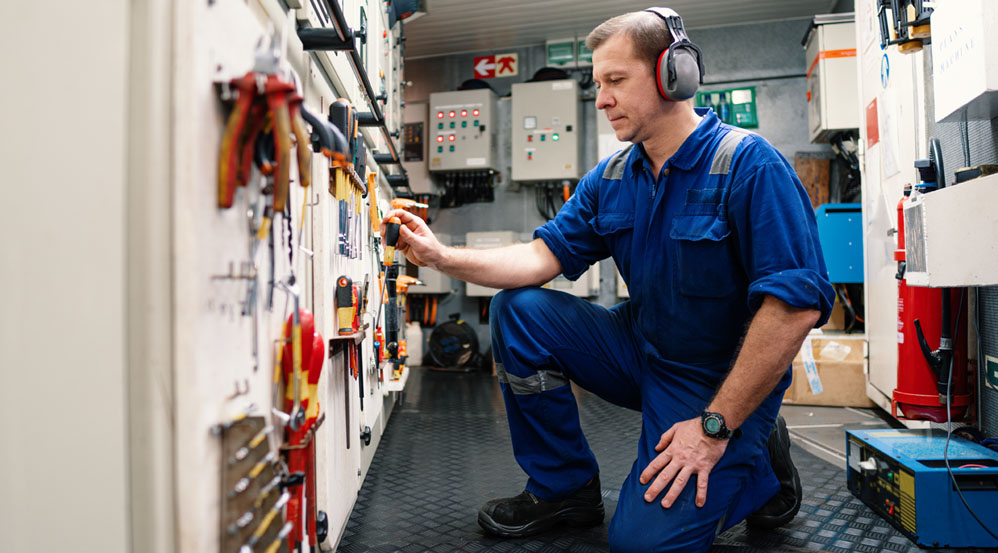
Research and Reviews
Start by researching local marine engine repair companies. Look for businesses with a strong reputation in the boating community. Online reviews on platforms like Google, Yelp, and boating forums can provide insights into the experiences of other boat owners. Pay attention to feedback regarding the quality of work, customer service, and the timeliness of repairs.
Tip: Don’t just rely on star ratings; read the reviews in detail to understand the pros and cons of each company.
Ask for Recommendations
Word of mouth is a powerful tool in the marine industry. Ask fellow boat owners, marinas, and yacht clubs for recommendations. Personal experiences from trusted sources can be invaluable in finding a reputable repair company.
Tip: Ask about specific experiences, such as the company’s handling of complex repairs or their responsiveness in emergency situations.
Check Certifications and Experience
Marine engines are complex, and repairing them requires specialized knowledge. Ensure the company you choose has certified technicians with experience working on your type of engine. Certifications from manufacturers or industry organizations, such as the American Boat and Yacht Council (ABYC) or the National Marine Manufacturers Association (NMMA), indicate a higher level of expertise.
Tip: Verify that the company is experienced in dealing with the specific make and model of your engine. Specialized knowledge can lead to more accurate diagnostics and efficient repairs.
Evaluate Customer Service
Good customer service is a sign of a reputable repair company. From your first interaction, assess how the company communicates. Are they responsive to inquiries? Do they take the time to explain the repair process? A company that values clear communication will keep you informed and involved throughout the repair process.
Tip: Visit the shop in person if possible. This can give you a sense of how the business is run and how they treat their customers.
Compare Pricing and Estimates
While price shouldn’t be the sole factor in your decision, it’s essential to get a clear understanding of the costs involved. Request estimates from several companies for the same repair job. Be wary of prices that seem too good to be true, as they may indicate subpar work or the use of low-quality parts.
Tip: Ask for a detailed breakdown of the estimate, including labor, parts, and any additional fees. This transparency can help you avoid unexpected costs.
Inspect the Facility
The condition of a repair facility can speak volumes about the quality of work. A well-organized, clean, and well-equipped shop indicates a professional operation. Look for a shop that has the right tools and equipment to handle your engine’s specific needs.
Tip: A busy shop can be a good sign of a trusted business, but ensure they have the capacity to give your engine the attention it needs.
Inquire About Warranties
A reputable marine engine repair company should stand behind their work. Ask about warranties on both parts and labor. A warranty provides peace of mind, knowing that if something goes wrong after the repair, the company will address it without additional cost to you.
Tip: Understand the terms of the warranty, including how long it lasts and what it covers. This can prevent disputes down the line.
Check for Insurance
Marine engine repair can involve significant risks, especially if something goes wrong. Ensure the repair company has adequate insurance coverage to protect your boat in case of accidental damage during the repair process.
Tip: Don’t hesitate to ask for proof of insurance. A reputable company will be transparent about their coverage.
Ask About Turnaround Time
Repairing a marine engine can take time, but it’s important to have a clear idea of how long the process will take. Ask the company for an estimated timeline and ensure it fits your schedule, especially if you have upcoming boating plans.
Tip: Keep in mind that quality work takes time. Be wary of companies that promise unusually fast turnarounds, as this could compromise the quality of the repair.
Evaluate Follow-Up Support
After the repair is complete, good companies will offer follow-up support to ensure your engine is running smoothly. This might include a post-repair inspection or a follow-up call to check on your satisfaction. Continuous support is a hallmark of a company that values long-term customer relationships.
Tip: Ask if the company offers any post-repair services, such as maintenance checks or advice on keeping your engine in top condition.
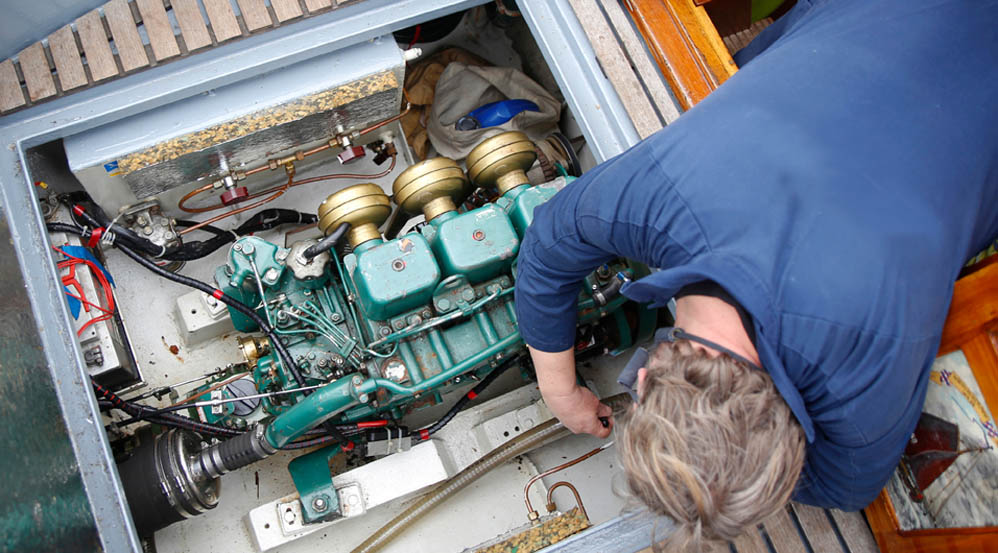
Conclusion
Finding the right marine engine repair company is essential for the health and performance of your boat. By doing your research, checking credentials, and evaluating customer service, you can choose a company that will provide reliable, high-quality repairs. Investing time in selecting the right repair shop can save you from future headaches and keep you enjoying the water with confidence.
Make sure to schedule an appointment with our team of marine engine repair professionals if you’re in need of maintenance, repair, or inspection.
Identifying and Troubleshooting the Most Common Marine Engine Issues
- September 6, 2024
- Boat Maintenance
- Identifying and Troubleshooting the Most Common Marine Engine Issues
Marine engines are the heart of any boat, but like all machinery, they can encounter problems over time. Understanding common issues with marine engines can help you troubleshoot and address them before they lead to serious complications. Here’s a look at some of the most frequent problems and how to deal with them.
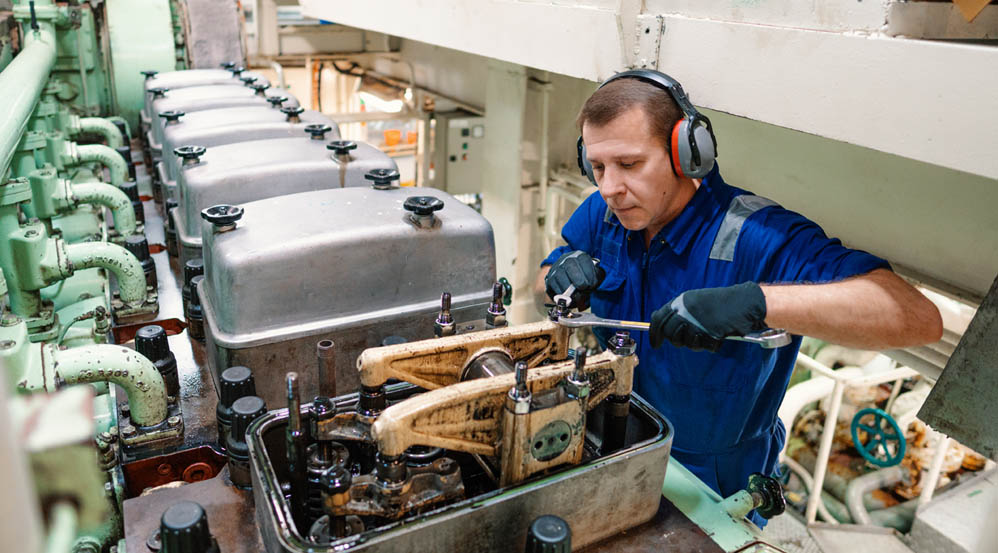
1. Engine Overheating
One of the most common issues with marine engines is overheating. This can be caused by several factors, including a malfunctioning cooling system, clogged water intakes, or a worn-out impeller. Overheating can lead to severe engine damage if not addressed promptly.
Solution: Regularly inspect the cooling system, including the raw water pump, impeller, and hoses. Ensure the water intake is free from debris and marine growth. If you notice the engine temperature rising abnormally, stop the engine and investigate the cause immediately.
2. Fuel System Problems
Issues with the fuel system can cause a range of problems, from poor engine performance to complete failure. Contaminated fuel, clogged fuel filters, or faulty fuel injectors are common culprits.
Solution: Regularly change the fuel filter and use clean, high-quality fuel. Consider using a fuel stabilizer, especially if the boat will be stored for a long period. Inspect the fuel lines for any cracks or leaks, and ensure that the fuel tank is free from water and sediment.
3. Starting Issues
Difficulty starting the engine is another frequent complaint. This can be caused by a weak battery, corroded electrical connections, or a faulty starter motor.
Solution: Check the battery charge and ensure all connections are clean and secure. If the battery is old or not holding a charge, consider replacing it. Inspect the starter motor for signs of wear or damage, and test the ignition switch for proper operation.
4. Loss of Power
If your marine engine suddenly loses power, it could be due to a number of factors, including fuel delivery problems, clogged air filters, or engine overheating.
Solution: Start by checking the fuel system for blockages or leaks. Inspect the air filters and replace them if they are dirty or clogged. Ensure the cooling system is functioning properly to prevent overheating. If the problem persists, a more thorough inspection of the engine may be necessary.
5. Unusual Noises
Strange noises coming from your marine engine can be alarming. These could range from knocking sounds to unusual vibrations, indicating potential issues like loose components, worn bearings, or problems with the drivetrain.
Solution: Investigate any unusual sounds immediately. Check for loose bolts, worn belts, or misaligned components. If you’re unable to identify the source of the noise, it may be wise to consult a marine mechanic to prevent further damage.
6. Excessive Smoke
Smoke from your marine engine can be a sign of various issues. White smoke typically indicates water in the fuel or a coolant leak, while black smoke suggests an overly rich fuel mixture or dirty injectors. Blue smoke often points to oil burning, possibly due to worn piston rings or valve seals.
Solution: Determine the color of the smoke to identify the possible cause. Check for water contamination in the fuel, inspect the fuel injectors, and look for signs of oil leaks. If you suspect internal engine damage, a professional inspection may be necessary.
7. Battery Problems
Battery issues are common in marine engines, especially if the boat is used infrequently. Corrosion, loose connections, and insufficient charging can all contribute to battery failure.
Solution: Regularly check and clean the battery terminals, ensuring all connections are tight. Test the battery’s charge and replace it if it’s not holding power. Consider using a trickle charger if the boat will be idle for long periods.
8. Corrosion
Marine environments are harsh, and corrosion is a constant threat. Saltwater, in particular, can cause significant damage to the engine and its components if not properly maintained.
Solution: Inspect the engine and its components regularly for signs of corrosion. Rinse the engine with fresh water after each use, especially if operating in saltwater. Apply anti-corrosion sprays to vulnerable parts and ensure anodes are in good condition and replaced as necessary.
9. Engine Sputtering or Stalling
Engine sputtering or stalling can occur due to issues with the fuel supply, air intake, or ignition system. It can be particularly frustrating when it happens at low speeds or under load.
Solution: Check the fuel filters and lines for blockages or air leaks. Inspect the air intake system for clogs or restrictions. Ensure that the spark plugs and ignition system are in good condition. Adjusting the engine’s idle speed may also help resolve sputtering issues.
10. Propeller Issues
While not directly related to the engine, problems with the propeller can affect engine performance. A damaged or improperly sized propeller can cause vibrations, reduce speed, and strain the engine.
Solution: Regularly inspect the propeller for damage, such as bends, chips, or cracks. Ensure the propeller is the correct size and pitch for your engine and boat. Replace any damaged propellers to maintain optimal performance.
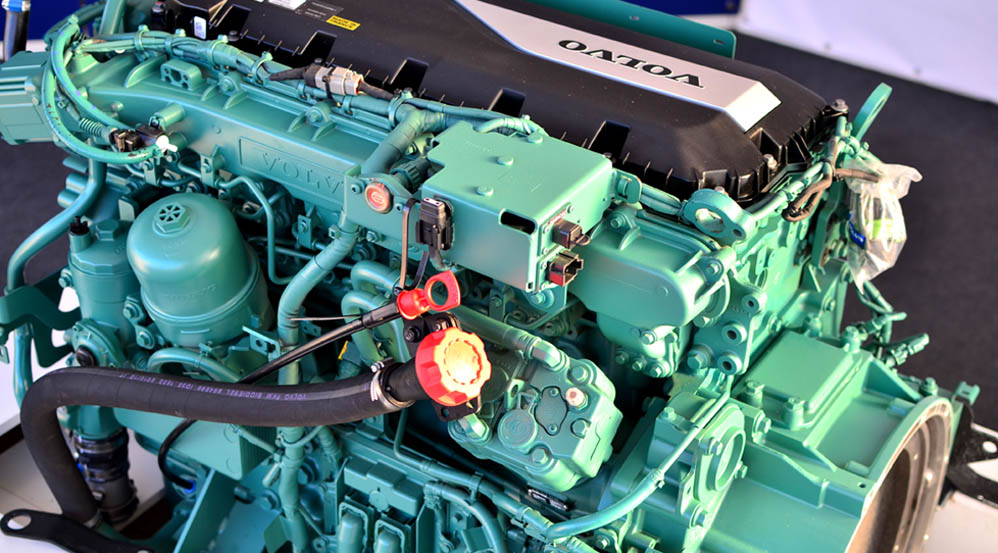
Conclusion
Understanding these common marine engine issues and their solutions can help you maintain a reliable and efficient vessel. Regular maintenance, prompt attention to problems, and knowledge of your engine’s quirks will keep your boat running smoothly and ensure you enjoy your time on the water without unexpected disruptions.
Make sure to schedule an appointment with our team of marine engine repair professionals if you’re in need of maintenance, repair, or inspection.
Tips for Maintaining Your Marine Engine | Regular Maintenance is Key for Your Boat
- September 3, 2024
- Boat Maintenance
- Tips for Maintaining Your Marine Engine | Regular Maintenance is Key for Your Boat
Maintaining a marine engine is crucial to ensuring the longevity and reliability of your vessel. Whether you’re a seasoned mariner or a novice boat owner, understanding the key aspects of marine engine maintenance can save you time, money, and a lot of headaches. Here’s a guide to help you keep your marine engine in top condition.
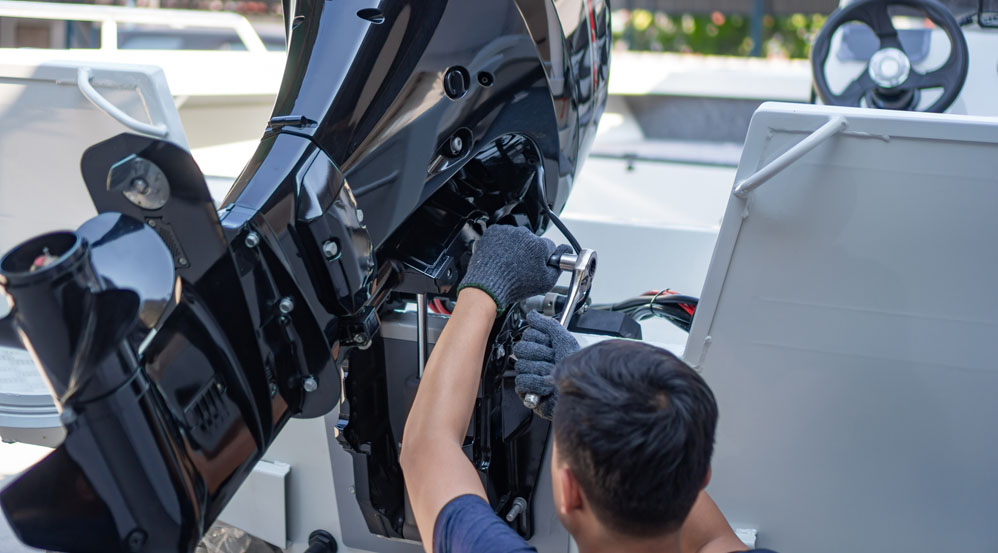
Regular Inspection is Key
Regular inspection is the foundation of marine engine maintenance. Make it a habit to check your engine before and after every trip. Look for signs of wear and tear, such as loose belts, corroded parts, or oil leaks. Early detection of issues can prevent small problems from becoming costly repairs.
Change the Oil Regularly
Oil is the lifeblood of your marine engine. Over time, oil can become contaminated with water, fuel, and dirt, reducing its effectiveness. Most manufacturers recommend changing the oil every 50 to 100 hours of operation or at least once per season. Always use high-quality marine-grade oil and replace the oil filter during each oil change.
Monitor the Cooling System
Marine engines operate in harsh environments, and a functioning cooling system is essential to prevent overheating. Check the coolant level regularly and top it up with the appropriate coolant mix if needed. Inspect the raw water pump impeller, as it can wear out over time and cause overheating. Replace it as per the manufacturer’s guidelines or if you notice any cracks or deformities.
Keep an Eye on the Fuel System
A clean fuel system ensures efficient engine operation. Use a fuel stabilizer if your boat will be inactive for an extended period. Regularly check and replace the fuel filter to prevent contaminants from entering the engine. Also, inspect the fuel lines for any signs of cracks or leaks.
Check the Electrical System
The electrical system of your marine engine is vital for starting the engine and powering essential components. Regularly inspect the battery terminals for corrosion and clean them as necessary. Ensure that the battery is fully charged and in good condition. Check all wiring for any signs of wear or damage, and replace any faulty components.
Inspect and Replace Anodes
Anodes, or sacrificial zincs, protect your engine from corrosion, especially in saltwater environments. Inspect them regularly and replace them when they are about half worn. Neglecting anode maintenance can lead to significant engine damage over time.
Keep the Engine Clean
A clean engine not only looks good but also helps in identifying potential issues early. After each trip, rinse off any salt deposits with fresh water, and clean the engine’s exterior with a mild detergent. Pay special attention to the nooks and crannies where salt and grime can accumulate.
Follow the Manufacturer’s Maintenance Schedule
Your engine’s manufacturer provides a maintenance schedule for a reason. It’s tailored to your specific engine model and includes critical maintenance tasks at specific intervals. Following this schedule is one of the best ways to ensure your engine remains in peak condition.
Winterize Your Engine
If you’re storing your boat during the off-season, winterizing your engine is essential to prevent damage from freezing temperatures. This process includes changing the oil, flushing the cooling system, adding antifreeze, and fogging the engine to protect internal components. Proper winterization can extend the life of your engine and make spring commissioning easier.
Keep a Maintenance Log
Maintaining a log of all the maintenance tasks performed on your engine can be invaluable. It helps you keep track of when specific tasks were last done and when they are due again. This record can also be useful if you ever decide to sell your boat, as it shows potential buyers that the engine has been well cared for.
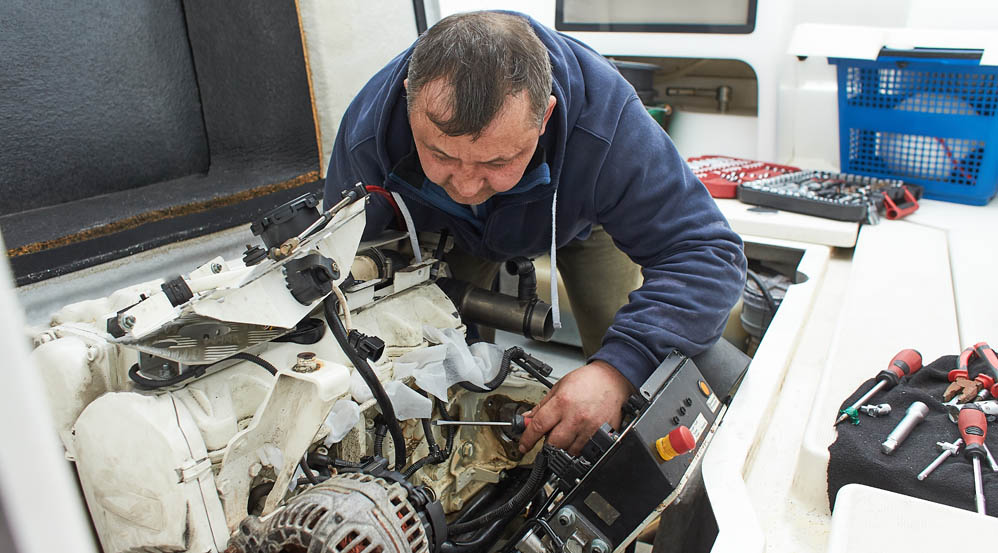
Conclusion
Marine engine maintenance is not just about keeping your boat running; it’s about ensuring your safety on the water. Regular maintenance can prevent breakdowns, improve fuel efficiency, and extend the life of your engine. By following these tips, you can enjoy more time on the water with the confidence that your engine is in top shape. Happy boating
Make sure to schedule an appointment with our team of marine engine repair professionals if you’re in need of maintenance, repair, or inspection.


